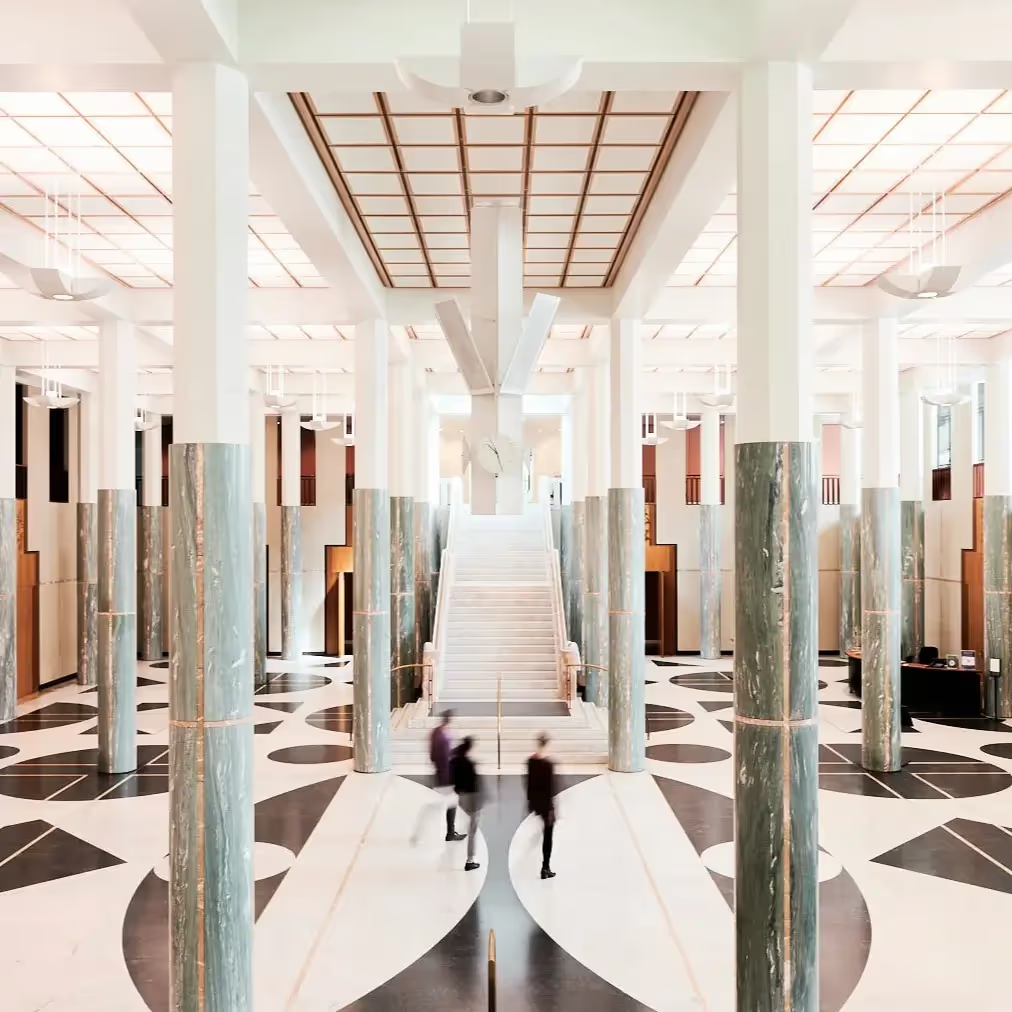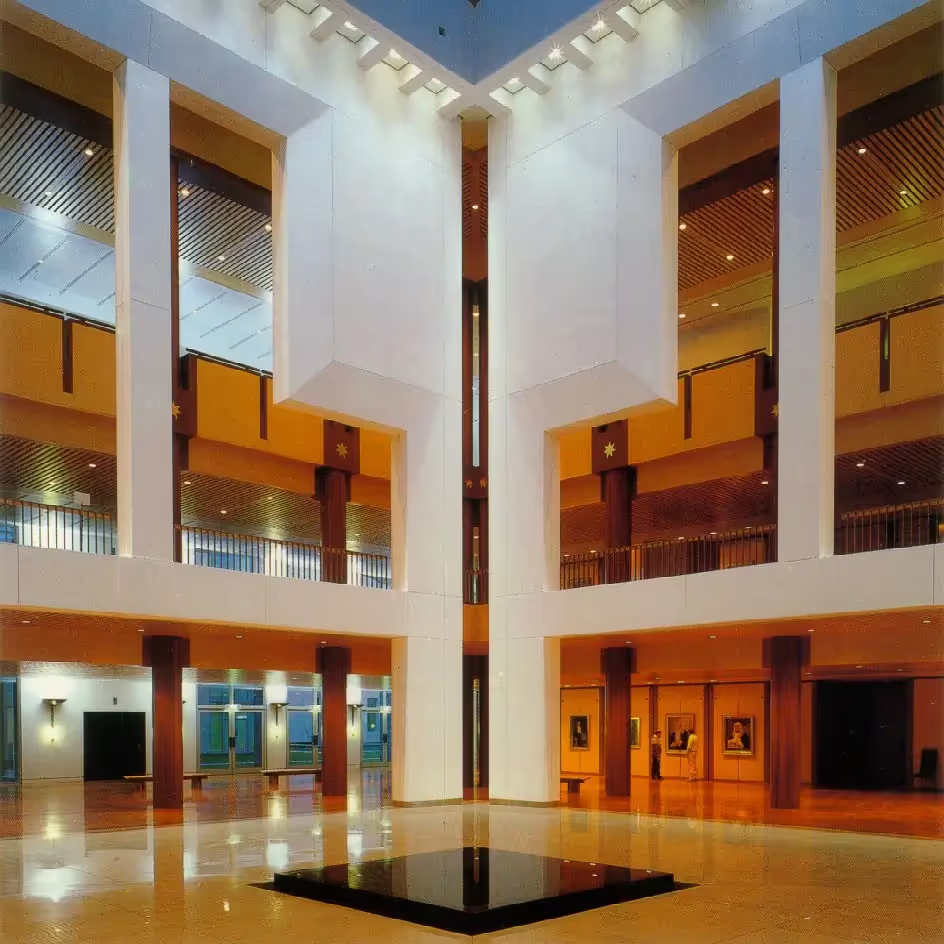Building relationships in Parliament
4
August
2025
1
min read

Navigating Parliament and establishing relationships can be a daunting prospect. However, through effective tactics you can get the objectives of your organisation on the radar of Parliament.
York Park Group’s Managing Partner Sean Sammon recently joined Susanna Montrone for an Advoc8 webinar on navigating Parliament and building relationships that matter.
Here, we share some of the insights they discussed.

Relationships
Government
A relationship with the Government has many layers, reflecting the broad nature of their agenda and the vast number of stakeholders. Relationships can be defined as:
- Reputation relationship – this is how the Government and voters feel about your organisation.
- Policy relationship – how does your advocacy needs align with the government's of the day and their priorities?
- Politician relationship – the direct relationship, either at a Ministerial level or with backbench MPs and Senators.
- Adviser relationship – the point of contact in the Minister’s office who can support with day-to-day advocacy matters.
The best relationships with the Government have an element of all of the above.
Opposition
While it’s quite soon after the Federal Election and the Opposition has lower numbers, they are still an important part of your stakeholder engagement.
They still play a role in setting the media agenda, still sit on Committees and, at some point, they will form government again.
If you have existing relationships – keep them warm. If you have an opportunity to build a new relationship, it’s always worthwhile doing so.
Crossbench
It’s always important to remember that the crossbench is busy, so any engagement needs to be relevant to them.
As such, it’s likely that engagement would centre around legislation and parliamentary processes (such as Committee Inquiries).
Crossbench MPs and Senators can be powerful champions for your issue, leveraging their profile and policy interests.
Bureaucrats
It’s important to engage with bureaucrats in parallel with political advocacy. Regardless of the issue, there is always a bureaucracy behind the scenes doing the deep policy work.
If the bureaucracy doesn’t support your idea, it is less likely to happen. Once you have indicative support from the Minister's office, it is well worth investing in building a relationship with the relevant department to understand what they need from you to push the issue forward.

Meetings
How to secure a meeting with key decision makers
There needs to be clarity as to why you want to meet and an understanding of how your objective aligns with the Government’s agenda – or why it doesn’t.
In terms of arranging the meeting, there is no fool-proof way. Here are some options:
- Adviser meeting – find out the relevant adviser, cold email or call them and explain the purpose of the meeting. Remember, it needs to be a good use of time for them as well, so make sure your ask isn’t all about you.
- Going through an MP or Senator – a politician is always more likely to call back another politician than they are a stakeholder they haven’t met. If this issue is important for a MP or Senator, they can become a powerful internal advocate for you.
- Letters and follow-ups - send a well-crafted letter, go through the diary process which may include an initial rejection which you then follow up... and continuing to do so until things align. The Minister might be in your area, or you might be in Canberra at the right time when they have a gap in their diary.
Preparing for and attending a meeting
Time will always be limited in a meeting with a politician or bureaucrat, so you need to make the most of it.
Ahead of the meeting, have a clear objective for that meeting – it could be to get a second meeting or something else.
When preparing the meeting brief, ensure that everyone attending the meeting has a role. With limited time, it’s best if messages are not repeated, so ensure each person is saying something slightly different, but equally relevant, to your meeting objective. It's also important to prioritise matters and keep the discussion focused on a few key items. If you try to cover too many things, it will be a one-way bombardment of information and not an engaging conversation.
Lastly, it’s important to finish the meeting with clarity. This could be to request an introduction to a contact in the department or asking who the best person in the Minister’s office is to follow up with.
After the meeting, always make sure you send through any information or materials you said you would.
Conclusion
Advocacy and engagement are different for each organisation.
York Park Group helps organisations define their advocacy objective, develop a strategy, and provides ongoing support and political intelligence to help clients engage effectively with politicians and the bureaucracy.
10
February
2026

Regional aviation in Australia: The key drivers behind current government reviews
Read news article
10
February
2026

Regional aviation in Australia: The key drivers behind current government reviews
Download White Paper
4
February
2026
.webp)
York Park Group launches transaction communications service
Read news article
4
February
2026
.webp)
York Park Group launches transaction communications service
Download White Paper






